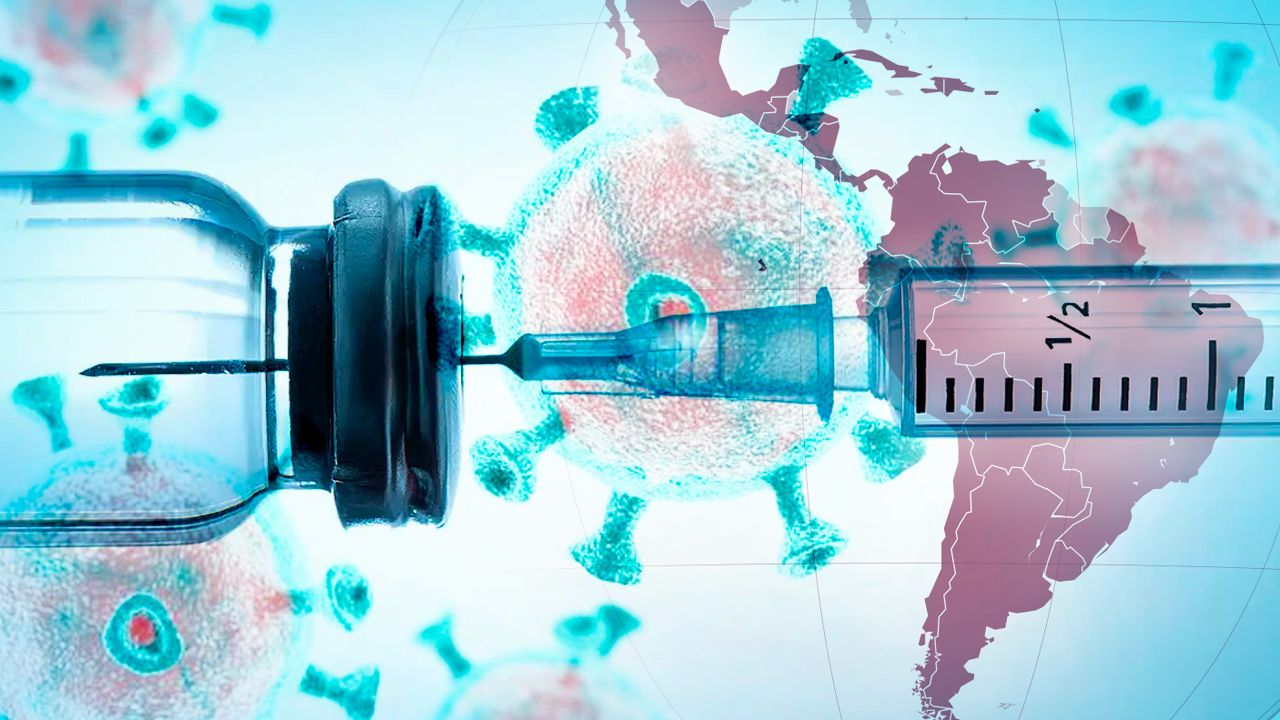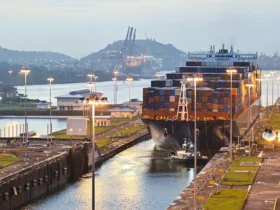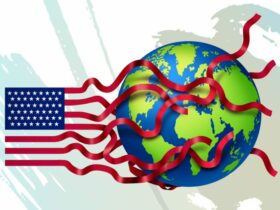People’s health should not be a political battleground for governments: those in charge should not seek economic or political gain if it puts the health of society at risk. It makes even less sense to reject a vaccine that can prevent new infections and save lives in the context of the worst pandemic of the century– sadly, however, many world leaders seem to lack sense, and are more motivated by politics than saving lives. While some countries in Latin America and the Caribbean have been conducting tests and purchasing Russia’s Sputnik V, this vaccine has begun to receive heavy criticism from some detractors… Why? because it has been produced in Russia. To be clear, the same would be true if it had been made in China, Turkey or Cuba.
The Sputnik V vaccine, also known as Gam-COVID-Vac or simply by the name of the institute that developed it: Gamaleya, was the first vaccine against COVID19 to be announced to the world. It was officially registered by the Russian Ministry of Health, on August 11, 2020, and since then it has been the target of numerous politically motivated attacks and sabotage. There is a “scientific community” that holds and imposes political hegemony in the field of health, its center is in Europe and North America, where massive pharmaceutical corporations supported by these Western governments have allied to discredit Sputnik V, and, at the same time, try to win the vaccine war in Latin America.
There is also a network of media sources that do their part to propagandize for the West. The well-known US newspaper The Wall Street Journal (WSJ) published an article on Monday, January 18, in which it asserted that Argentina “is a testing ground for Moscow’s global vaccine drive.” With that title, the newspaper criticized the vaccination campaign in Argentina and warned about the Russian strategy to capture the market of emerging countries in the fight against the coronavirus. The publication argues that the reason countries in Latin America are buying the Russian vaccine is because it is “cheaper than Western alternatives” (not better or, at least, equally effective, only “cheaper” …) The WSJ also says that “Sputnik V, named for the Soviet satellite launched into orbit during the Cold War, ranks third in the world by doses ordered by middle-and low-income countries, according to Duke University’s Global Health Innovation Center”. Sputnik V is ahead of US drugmakers Pfizer Inc. and Moderna Inc. and China’s vaccines. However, in the face of these political attacks by hegemonic groups, several Latin American states have spoken out in support of the Russian government and vaccine. At the beginning of January, Evo Morales declared: “We denounce a political-media campaign of large consortiums that do business with health against the Sputnik V vaccine, which Bolivia agreed to buy to fight the coronavirus. Disinformation, in health matters, is an attack on the human right to life”. The reaction of the former Bolivian president came after the Bolivian government had signed an agreement with the Russian Direct Investment Fund (RDIF) for the acquisition of 5.2 million doses of Sputnik V on December 30. This country will make the first delivery, approximately 1,700,000 doses, during the coming month of March, the second shipment of vaccines will arrive in April and a third shipment will arrive in Bolivia in May. For its part, Argentina received the first Gamaleya, about 300,000 doses, on December 24, 2020, which have already begun to be administered to health personnel, to immunize professionals who work in the care of the population with greater risk of infection. The Argentine government stated that “the vaccines will be provided by the national State free of charge, voluntarily and also in a preventive manner.” A second shipment from Russia arrived in Buenos Aires on January 16, and other shipments of vaccines will continue to arrive in the first months of 2021: Argentina plans to vaccinate around 25 million people between January and June of this year. As for Venezuela, the Caribbean nation was the first to initiate clinical trials of the Sputnik V vaccine, in October of last year, administering about 2,000 doses. President Nicolás Maduro said in this regard: “On behalf of the Venezuelan people, I thank Brother President Vladimir Putin and the Russian people for his show of solidarity.” Already last December, Kirill Dimitriev, director of the RDIF, announced the purchase by the Venezuelan State of 10 million vaccines. Venezuela just inaugurated the National Ozone Scientific Center (CENAOZ) this January. This institution, which guarantees the development of strategies for the application of ozone therapy in all its modalities and uses, is predominantly aimed at contributing to the medical protocols established in the South American nation for the treatment and cure of patients with Covid19. The Venezuelan president declared that CENAOZ was made possible thanks to the scientific collaboration between specialists from Venezuela and Cuba.
In fact, Cuba deserves a special mention. The island is the only country in Latin America and the Caribbean that is carrying out advanced-phase clinical trials of four vaccines against Covid19: Soberana 01, Soberana 02, Mambisa and Abdala. This country invests 11% of its GDP in health and 8 out of 11 vaccines in its health calendar are produced entirely in Cuba. Several Latin American countries use vaccines produced on the island in their vaccination schedules. All this makes Cuba a great producer, developer, and exporter of vaccines, laying the foundations for the successful development of its vaccine candidates against Covid19. The problem that is presented to the Cuban government is, on the one hand, having the necessary raw materials and other inputs to produce vaccines in industrial quantities with a view to increasing their export capacity, and, on the other hand, the low presence of positive cases of Covid19 that delay testing in the most advanced and complex phases of clinical trials. In this sense, the governments of Cuba and Iran have signed an agreement so that the Pasteur Institute of Tehran can carry out part of phase III of the Sovereign 02 trials in Iran. Other Latin American countries have acquired or are in the process of acquiring Sputnik V, including Nicaragua, Mexico, Panama and Chile.
In this process, the role played by the Russian Direct Investment Fund (RDIF) has been fundamental. Since the beginning of the COVID-19 pandemic, this fund created in 2011 has financially supported the Gamaleya National Center, which conducts epidemiological investigations and has invested in large-scale production of the vaccine; in the same way, on behalf of the Russian Federation, it is the negotiating actor in the purchases of the Russian vaccine by the Latin American States. There are ongoing negotiations with private entities and with governments. The latter is the case of several Brazilian states that, given the refusal of president Jair Bolsonaro to buy vaccines to meet the needs of the Federative Republic of Brazil, have begun to acquire Sputnik V bilaterally without going through the Brazilian central government. Brazil is one of the most affected nations in the world, it fluctuates in the 2nd or 3rd place, just behind the United States and India, in the number of people infected and deaths as a result of Covid19. The Brazilian case is truly heartbreaking and deserves a sad, as well as dramatic, mention due to the incredible inefficiency of Bolsonaro’s government management.
The Amazon without oxygen
The most recent crisis of the South American giant takes us to the state of Amazonas in the north of Brazil. It’s very common to hear people talking about the Amazon as “the lung of the world”,a reference more linked to the importance of this marvel region in combating global warming. However, in this reserve of pure air for the entire life of our planet, there is a serious contradiction: thousands of human beings are dying from lack of oxygen or rather due to lack of central government management. The Amazonas has become the new epicenter of Covid19 infections in Brazil, with more than 250,000 positive cases to date and around 6,000 deaths: the healthcare system has completely collapsed. Although 50% of the cases occur in Manaus, the capital of the Amazonas state, the interior cities have an even more precarious infrastructure and the situation is equally dramatic in the face of the oxygen crisis. In addition to this, scientists have detected a new strain that originated in Manaus. The picture is increasingly worrying, but Bolsonaro has not yet decided to take serious measures to counteract the effects of the coronavirus: neither the purchase of vaccines in the necessary quantities nor a total lockdown and national quarantine to reduce cases and deaths. In fact, Bolsonaro has not yet personally visited the state of Amazonas and the Brazilian Minister of Health is under investigation to determine the degree of responsibility that falls on him for the desperate situation in Manaus and other cities in that state.
There are many sectors of the Brazilian society and social movements asking for an impeachment process against Bolsonaro over this and for the way he has handled the Covid19 situation from the very beginning. Thus, after the dramatic panorama that the Coronavirus caused in Latin America in 2020, many things have become clear, the main one being that the consequences were better or worse depending on the political decisions that each government made to cope with the pandemic. Governments that thought of health not as a business, but as part of a transcendental public policy of government management, since what is at stake is precisely life, have been able to face the pandemic with lower costs and losses. These governments have also had positive responses from their citizens. In many ways, Covid19 came to demonstrate, once again, that what should prevail in democratic societies is an interest for life on our planet. On the other hand, the pharmaceutical war has shown that the pact between large economic conglomerates in order to obtain higher revenues or profits takes advantage of the pandemic context in which we find ourselves. Here, we dare to say that Sputnik V has won the vaccine race for many reasons, but especially because Russia has applied multilateralism to meet global needs.
















Leave a Reply